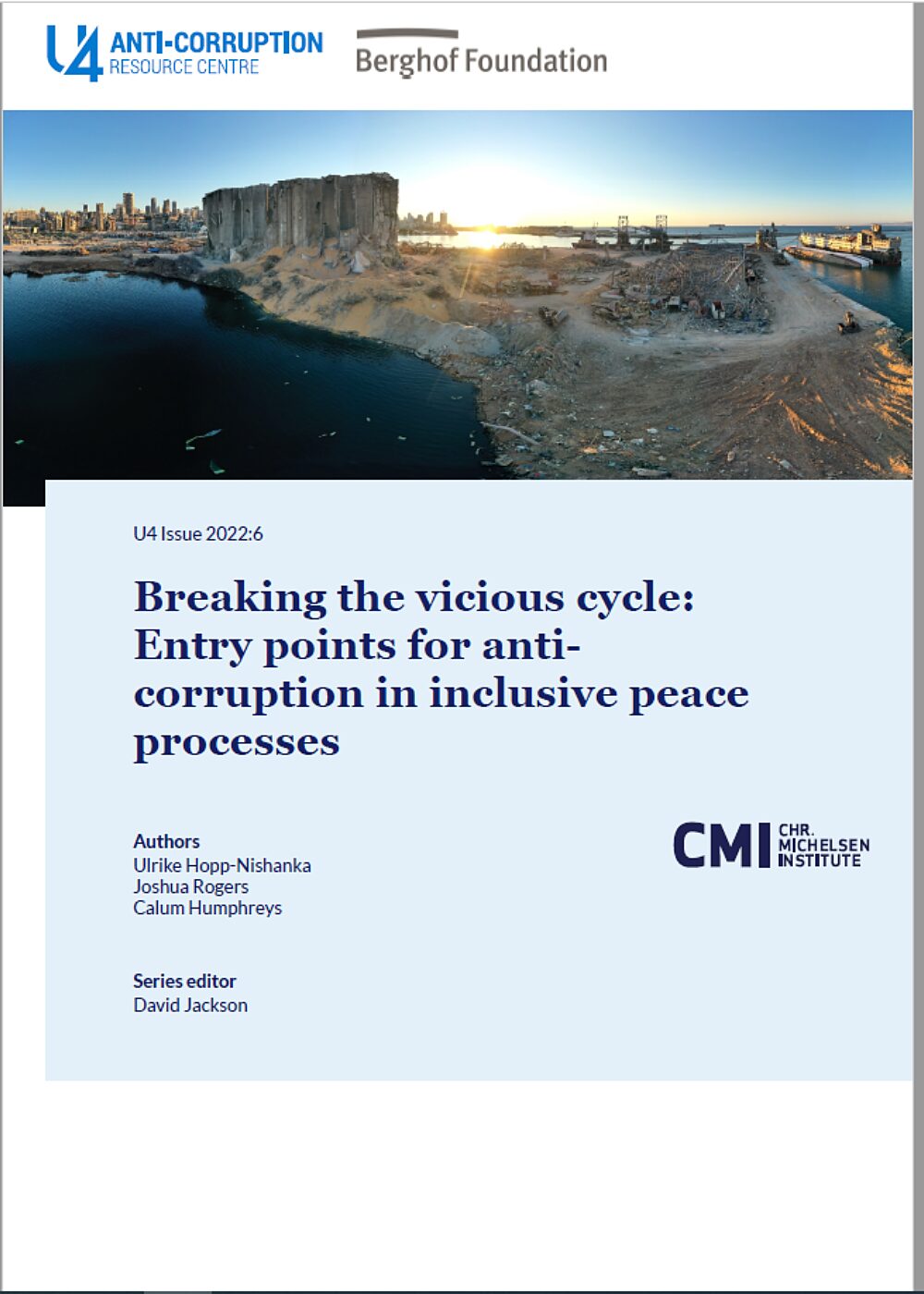Inclusive governance and accountability
An inclusive governance infrastructure with accountable institutions, that are capable of effectively responding to communities' needs, is vital for addressing economic factors that drive conflict within societies.

Definition:
Governance is inclusive if it effectively engages and serves all members of society. It is accountable if the making and enforcement of rules is transparent, impartial and responsive to all members of society within a given state or community.
See also: Conflict sensitivity, conflict transformation, peace process, inclusivity
Inclusive governance and accountability are central to addressing the economic factors driving conflict, as well as perceptions of corruption, injustice and feelings of political marginalisation. Essentially, it can help build resilience of communities by restoring social cohesion, facilitating participation, distributing resources and safeguarding minority rights.

High levels of corruption and violence form a mutually reinforcing vicious cycle: The more violence present, the more likely an environment can be prone to fraud, bribery and embezzlement. We believe that peacebuilding and anti-corruption practitioners can contribute to breaking this vicious cycle. They can also help achieve state legitimacy, trust between communities and trust in institutions.
When peacebuilding programming focuses on inclusive governance and social accountability, we can create more constructive and peaceful relations from the ground up. In Yemen, for example, we support mediation, local consultation and dialogue to ensure local governance was sufficiently taken into account in Yemeni and international policymaking and peace negotiations. Our work in Lebanon also supported local-level stabilisation and social cohesion through dialogue-based activities to overcome the country’s multi-layered crises. In cooperation with U4, we aimed to bridge the contributions of peacebuilding and anti-corruption practitioners in the quest for a sustainable transformation process in our joint publication.
But working towards more inclusive governance and accountability also requires an understanding of conflict economies: In every conflict there are incentives from both sides to either sustain war-related profits and benefits or, conversely, to encourage inclusion and accountability. Successful conflict transformation requires identifying these incentives and using them to mobilise coalitions for peace.
In order to secure a durable peace, we must proactively analyse economic drivers of conflict and prioritise them in peace and transitional processes in ways that do not undermine fragile political settlements. Doing so is in the interest of all actors working at the triple nexus of humanitarian, development and peacebuilding programming. Only if we manage to integrate anti-corruption efforts into peace processes and support inclusive governance and accountability mechanisms can we help re-build trust in states and institutions.
Learn more
- From entry points to sustainable action: Equipping peace processes for accountability and integrity. The case of Bangsamoro
- Breaking the vicious cycle. Entry points for anti-corruption in inclusive peace processes
- Accountability and integrity in peace processes. The case of Bangsamoro
- Video: Breaking the vicious cycle. How can anti-corruption measures be integrated in peace processes?
- Strengthening inclusive local governance and peacebuilding in Yemen
- Inclusive local and national-level dialogue in Lebanon. Supporting reform options, vision-building and concrete action for service delivery and social cohesion